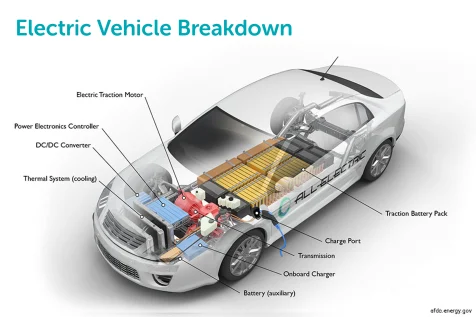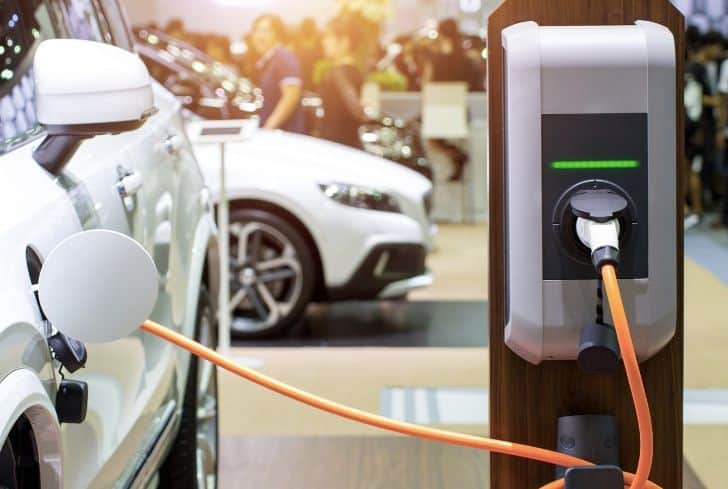An electric vehicle (EV) is simply an automatic vehicle that is powered by an electric motor. A totally electric vehicle is one that does not use or have a gasoline or diesel engine. When you put an Electric Car in ‘drive’ mode, it accelerates like an automated vehicle. Electric and hybrid vehicles do not have gears. They’re all completely automatic vehicles.
Power is transmitted from the battery to the electric motor when the accelerator is pressed. When the motor is turned on, the drive shafts turn the wheels. When the car brakes, the car decelerates and the motor converts to an alternator, which generates power. This energy is then returned to the battery.

What Is An Electric Car?
Electric vehicles (EVs) are a relatively new concept in the automobile industry. Although some manufacturers have built their entire car model around being proactive and using electricity, others provide hybrid vehicles that run on both electricity and gas.
While You Care for Your Car, Care for Your Child’s Future Too 💖
A fun and educational book every parent should gift their kid.
 Get Kiddy Store Fortune Now
Get Kiddy Store Fortune Now
A Nissan Leaf, Ford Focus Electric, Tesla Model S, or Chevrolet Volt electric car is a terrific way to not only save money but also contribute to a healthy and stable environment.

Cars emit a large amount of carbon dioxide into the atmosphere, putting us at risk of pollution and greenhouse gas emissions. An electric car is a fantastic step forward in terms of positively helping the environment we live in.
You can get government subsidies for being environmentally aware by purchasing an electric vehicle. Despite the fact that you may end up spending more for your car, the benefits far outweigh the drawbacks. When it comes to purchasing an electric vehicle, however, there are two sides to consider.
EVs are powered by rechargeable batteries that are put within the vehicle. These batteries are utilised not only to power the car, but also to keep the lights and wipers working.
Electric vehicles have greater batteries than traditional gasoline vehicles. It’s the same type of battery that’s often used to start a gasoline engine. The main difference is that there are more of them in electric vehicles, which are utilised to power the engine.
What Are The Different Types of Electric Cars?
Electric vehicles (EVs) come in a variety of shapes and sizes. Pure Electric Vehicles, or EVs, are vehicles that run entirely on electricity. Hybrid Electric Vehicles – often known as Hybrids – are electric-powered vehicles that can also run on gasoline or diesel thanks to modern technologies.

Plug-in electric – A plug-in electric vehicle is one that runs entirely on electricity and receives all of its power when it is plugged in to charge. This sort of vehicle does not use gasoline or diesel to operate, and thus does not emit any pollution like typical vehicles.
Plug in hybrids – Plug-in hybrids mostly run on electricity, but they also contain a traditional fuel engine that can run on gasoline or diesel if the battery runs out. These cars produce pollutants when they run on gasoline, but not when they run on electricity. Plug-in hybrids may recharge their batteries by plugging them into an electrical outlet.
Hybrid-electric – Hybrid-electric vehicles run primarily on gasoline or diesel, but also feature an electric battery that is recharged via regenerative braking. At the touch of a button, you can switch between running your gasoline engine and employing ‘EV’ mode. These vehicles are unable to connect to an electrical source and must rely on gasoline or diesel for power.
